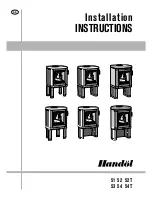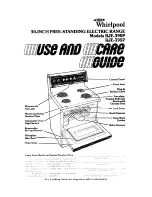
Use and maintenance manual Circular
Pag.27
Rev.1 28/10/2021
EN
This type of installation (See Fig.4) requires an insulated chimney
pot, even if the entire smoke conduit is installed outside the
building.
In the lower part of the chimney there is a "T" type fitting installed
with inspection cap.
It is prohibited to install a 90° bend for the initial segment, since
the ashes would quickly obstruct smoke passage, causing draught
problems in the appliance. (See Fig.2)
This type of installation (See Fig.5) requires an insulated chimney
pot, since the entire smoke conduit is installed inside the building,
and the part is located inside a pre-existing chimney pot.
In the lower part of the appliance there is a "T" type fitting installed
with inspection cap just like for the chimney pot.
It is prohibited to install a 90° bend for the initial segment, since
the ashes would quickly obstruct smoke passage, causing draught
problems in the appliance. (See Fig.2)
INTERNAL
CHIMNEY
Fig.5
Protection from rain
Covering sheet
Air-tight steel sheet metal
T fitting with collection
chamber for condensation
Inspection hatch
Fig.4
Protection from rain
Insulated chimney
T fitting with con-
densation drain and
collection chamber
This type of installation (See Fig.6) requires a horizontal section to
connect to a pre-existing chimney pot.
Respect the slope indicated in figure, in order to reduce the ashes
depositing in the horizontal tube. In the lower part of the chimney
pot, there is a "T" type fitting installed with inspection cap, in the
same was as the chimney pot opening.
It is prohibited to install a 90° bend for the initial segment, since
the ashes would quickly obstruct smoke passage, causing draught
problems in the appliance. (See Fig.2)
2 - 3 mt max
Height exceeding 4 mt
Slope 3 - 5 %
Max 2 -3 mt
INTERNAL
CHIMNEY
Fig.6
T fitting for
condensation
Inspection hatch
Protection from
rain
External
air intake
External
air intake
External
air intake
















































